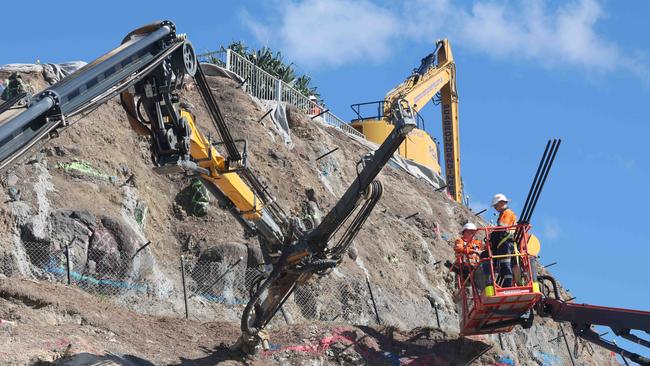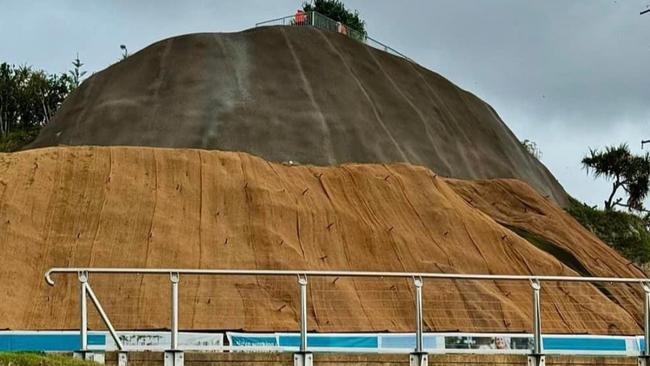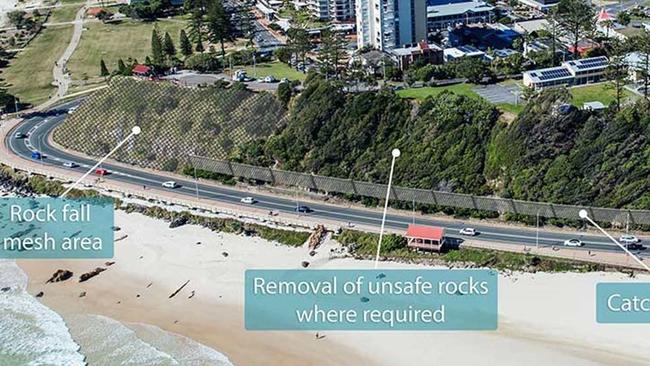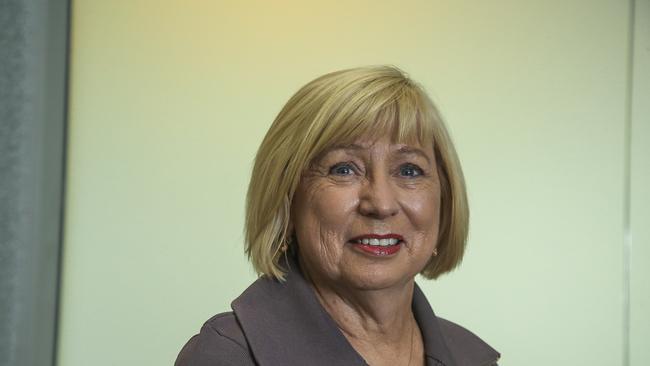Council defends Kirra Hill stabilisation as residents vent about loss of green icon
The iconic southern headland of Kirra Hill is being called “the Gold Coast’s Ayers Rock” as residents protest about the loss of vegetation caused by a council stabilisation project.

Gold Coast
Don't miss out on the headlines from Gold Coast. Followed categories will be added to My News.
The iconic southern headland of Kirra Hill is being called “the Gold Coast’s Ayers Rock” as residents protest about the loss of vegetation caused by a council stabilisation project.
Some residents on social media have accused the City of environmental vandalism, asking how the damage can be fixed.
But council says there is no option but to stabilise the hill after serious rock falls — and the much loved lookout over one of Australia’s best surfing breaks will become green again.
A resident on a Facebook page wrote: “Looks like Ayers Rock if you squint.” Others agree about the barren landscape mirroring Uluru, adding “what have they done”.
“Thirty years ago — I and my wife were married on top of Kirra Hill and now looks a far cry to what it looked like then — bloody disgrace,” a resident wrote.

Save Our Southern Gold Coast leader Kath Down believes council could have “made a better job of it’.
“They’ve stabilised it with concrete. There’s a lot of people in Kirra very upset about it,” she said.
“Some people believe the stabilisation wasn’t necessary, but it’s close to the road, I get it.

“They’ve shredded so much vegetation, it looks like it will remain that way.”
Area councillor Gail O’Neill said council made the decision to stabilise the hill after conducting several geotechnical investigations and obtaining reports.
“Doing nothing was not an option,” she said.
The stabilisation of the north side of the hill was completed in 2023 and replanted vegetation was “doing well”.
“The south side is a larger area and has required shotcrete at the top,” Ms O’Neill said.

“There will be planting of mature vegetation which will cascade over the shotcrete.”
The work will be completed in December but it will take six to 12 months for the replanting to take off.
The new Kirra Eagle will be installed at the end of the year in the same spot, Ms O’Neill said.





